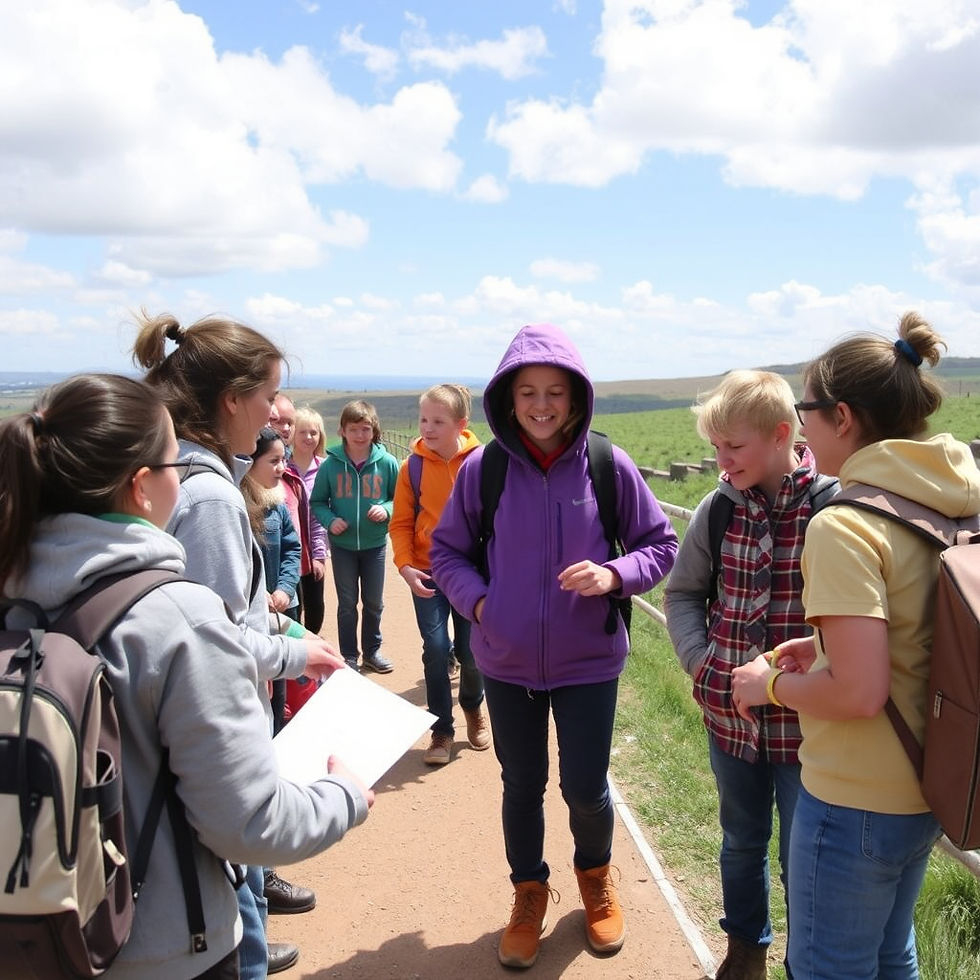Excursions for Students with Autism-Why and How to Organise an Excursion.
- Dec 31, 2015
- 3 min read
Updated: Aug 7, 2025

Why are excursions important ?
Excursions formed an important part of the classes' learning program as it gave students opportunities to generalise skills we taught at school and gave us, as teachers, opportunities to help families teach important life skills to their children. Travel training and social skills while on excursions form an important part of a Life Skills Program, which prepares students for greater independence as they mature.
As with the academic program, it is important to find the students' entry points to travel skills, leisure skills, walking in the community, shopping skills, and extending their waiting skills when in shops and eating areas.

As the school I taught at, we had a good staff ratio, so excursions were viable. We usually had a term with the autistic students and then we could decide if we could be assured that the students could be safely taken into the community. Their safety was always paramount. We would go shopping on one day, as cooking was highly motivating so we would buy groceries for a weekly cooking session. Then we would dedicate a half day each week to an excursion in the community.
A good place to start with excursions was to use visuals to show the students that an excursion would be on the agenda for the next day. If you have students who are on higher levels in their communication/English skills, it is a good opportunity to teach them future tense in their daily writing, ie. tomorrow will be..... and we will go ........... etc. (The students in my school were up to 9 years of age and then moved onto a mainstream school or a Special School.)
On the day of an excursion, the students would prepare a work activity that supported the day's excursion and other language skills. The activity would be modified to each student's level.

Excursion Schedules.
Boardmaker pictures were used throughout the school to give the children familiarity with pictures and matching words. Some students needed photos as they were not ready for more abstract pictures, and unfamiliar places required photos, if possible.
Making excursion schedules as a work task was functional, as well as developing the reading and writing skills of the children. Over their four years at our school, many autistic students developed good sight vocabulary and written skills through functional work tasks. Although repetition is important, the teacher has to be aware of the need to move each child along in expectations and becoming more independent in the work.
1. Some children would write a schedule, alongside ordinal numbers on a sheet and using the daily schedule board to follow the order of events, if needed.
An example of what an autistic student may be expected to do, when he is on the higher levels of writing and reading:
Today is ........(Monday) and we will go on an ...........(excursion to the zoo.)
1st. ............(We will go on the bus to the zoo.)
2nd. ...........(We will eat lunch at the zoo.)
3rd. We will see the ..................( lions. tigers, monkeys, gorillas, elephants and butterflies.)
4th. ..............(We will go back to school.)
5th. ..............(We will rest and then go home.)
2. Some students could do a cloze exercise, with the missing words in a box.
3. Some students could be doing a cut and paste picture and word to complete a sentence. Depending on the student's level, the student may be able to fill the gap with the correct picture/ word independently or may require it to be a matching activity.
An Example:
Today is _________.(boardmaker pictures and labels-independent or matching activity)
!st. We will go on an _________ to _________.
2nd. We will get on the _________.(bus)
3rd. We will eat ________ at the zoo.
4th. Then, we will see the _______,________,________, and __________.
5th. Then, we will go back to _______________.
4. Some students could be doing a simple paste where a picture is added next to an ordinal number based on the excursion. e.g. matching boardmaker picture to picture. This may be an option for children who cannot cut yet, or are working on pasting independently.
1st. (day)
2nd. (excursion)
3rd. (specific place)
4th. (lunch)
5th. (play)
6th. (back to school)
And then they are ready and well prepared to go!
I will continue the Excursion theme with travel skills in the next post.
You can return to Home Page to see all my posts by clicking the button below
Don't forget to like or share my post.






















Comments